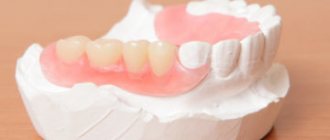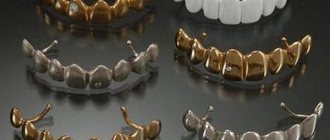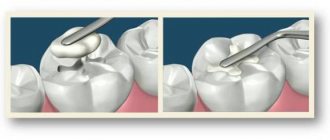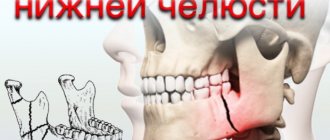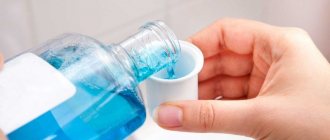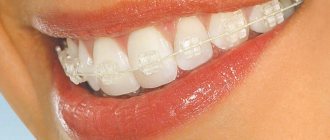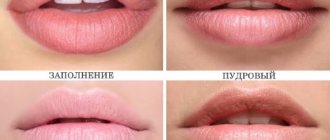Let's start with the bad: brushing your teeth at home is not enough to completely clean your mouth. That is why we are often bothered by bad breath, although nothing seems to hurt and everything looks normal. It’s somehow inconvenient to go to the dentist: it doesn’t hurt to eat, there are no specific complaints, but judging by the price tag, they tore out everything that was possible. However, there is a good continuation of this tragic story: you yourself can buy the funds you pay for at the reception. This will prevent many troubles for which you will have to fork out in full. So, we will look at modern home appliances for cleaning teeth and caring for a Hollywood smile.
Description of the device
The main operating principle of the bath is the use of high-frequency oscillations, which have a comprehensive effect on contaminants using the cavitation method. With the help of such vibrations, harmful microorganisms are eliminated by ultrasound. When using such devices, you do not need to worry about the condition of the prostheses. Cleaning involves the use of distilled water or absolutely harmless, natural solutions. Thus, we can say with confidence that this type of denture cleaning will not affect human health in any way.
At first impression, it seems that using an ultrasonic bath for dentures is absolutely simple, but there are certain nuances here too. They mainly concern the choice of the device itself and setting up the equipment for specific purposes. The characteristics of the device when purchasing should play an important role. Particular attention should be paid to ensure that cleaning occurs as efficiently as possible, and that the structure of the dentures itself is not damaged. It should be borne in mind that the materials used to create prostheses are quite fragile, especially metal ceramics and acrylic plastic. In such options, it is better to provide gentle processing modes.
To get the maximum effect from the ultrasonic cleansing process, you must follow these tips:
- The bath must be filled with clean water.
- The denture must be completely covered with the solution or water.
- The standard cleaning procedure time is five minutes. If more thorough processing is necessary, the time is extended.
- After the bath has cleaned the denture, any remaining plaque can be removed with a soft brush.
- After finishing work, the device must be wiped with a dry and clean cloth.
What types of ultrasonic baths are there for dentures?
How should dentures be stored?
One of the most important questions for owners of artificial teeth is how to properly store dentures at night. This nuance is really important, because if stored incorrectly, the prosthesis can become deformed. Such products should be removed at night.
An exception to the general rule is the first 2 weeks of wearing. During this period, the prosthesis must be worn constantly, without removing the prostheses at night. It can only be removed for a very short time. In the future, the gum tissue needs rest - at least 6 hours per day. It is better to check with your dentist whether to remove the denture at night and from what time to do this.
The prosthetic product must always remain moisturized so that its shape does not change. From this it follows how to store dentures over a long period (overnight). The structure is placed in a special solution or in water. But products with metal components should not be left in water with a high chlorine content, otherwise the metal will begin to darken. Do not store dentures in hot water, as this will cause deformation.
Read Dental crowns - types of dental crowns, what they are, which ones are better to choose
Denture whitening
Whitening the structure is necessary in case of improper care and the formation of dark plaque. Pastes with a whitening effect cannot be used for these purposes; they are all highly abrasive. Violating this rule can result in scratches that are extremely difficult or even impossible to remove.
To make artificial elements white again, you can use effervescent tablets or an ultrasonic device.
How did it all begin?
A popular procedure in the cosmetology field is facial cleansing. Skin problems are a common occurrence, and many girls first get acquainted with a beauty salon when this particular problem arises.
Cosmetologists who know everything about clean and healthy skin eliminate dead skin cells that interfere with the metabolism of the epidermis.
The most important goal of cosmetic cleansing is to achieve deep cleansing of the skin pores.
An essential component of the procedure performed by a cosmetologist is to rid the patient of comedones, clogged, greasy pores, blackheads, and remove excess sebaceous secretions.
Dust, small particles, dead cells, salting are unfavorable companions. Cleansing them refreshes, improves skin color, and slows down the inevitable aging process.
Geosoft
The manufacturer claims a device that is capable of disinfection and pre-sterilization cleaning of prostheses and instruments. For this purpose, it is proposed to use a special solution that will clean surfaces under the influence of ultrasound. The bath can hold 150 ml, while the solution requires from 50 to 100 ml per use. The ultrasonic bath is equipped with a timer for three minutes. The average cost of the device is about 12 thousand rubles.
Basic rules of care
Hygienic procedures are carried out for all types of removable dentures, regardless of the material and type of installation. These include the following:
- Daily cleaning. For fully and partially removable dentures - dental pastes and brushes. Conventionally, removable structures are removed and cleaned by the dentist.
- Storage. There are special container boxes for storing dentures, especially during transportation or during night sleep.
- Caring attitude. The structures must not be dropped or disassembled. You should also avoid eating foods that are too hot or cold, as these temperatures can cause the denture to become deformed. At the same time, you should not test the strength of the prosthesis by chewing nuts, crackers, or opening corks with artificial teeth.
To ensure a tight fit of the artificial jaw, you need to use fixing creams and gels. A firmly installed denture promotes proper distribution of pressure during chewing and prevents food from accumulating underneath it.
Contraindications
Like any medical procedure, ultrasonic teeth cleaning has its contraindications:
- Installed pacemaker;
- Acute inflammatory processes in the periodontium, osteomyelitis;
- Oncological neoplasms in the oral cavity;
- Erosion of soft and hard tissues of the oral cavity;
- Severe form of diabetes mellitus;
- Acute and chronic infectious diseases;
- Severe diseases of the cardiovascular system;
- Epilepsy;
- A history of retinal surgery (consultation with an ophthalmologist is required).
Euronda
This manufacturer offers a wide selection of devices with increased frequency of ultrasonic exposure. This facilitates deeper and more thorough cleaning of dentures, as well as pre-sterilization procedures and disinfection of dentist’s instruments.
The dimensions of the ultrasonic baths from this manufacturer are quite compact; they are equipped with a stainless steel tank. The timer is set to 10 minutes. The design of the bathtub of this brand is equipped with a piezoceramic transducer with a power of 40 W. The undoubted advantages of this device are:
- High quality materials.
- Automated control.
- Tools to be cleaned can be placed directly on the bottom of the tank.
Euronda costs from 18,500 rubles.
Is ultrasonic teeth cleaning harmful?
The ultrasonic scaler does not have any negative effects on the patient’s body - the technique is considered absolutely safe. Above we have already outlined a number of restrictions on its use. Only ignoring these contraindications and violating the technology of the procedure can lead to unpleasant consequences, and the most common of them is hyperesthesia - increased sensitivity of the enamel due to its too much trauma and thinning. Among other possible problems, experts highlight accidental damage to gum tissue, its possible inflammation and infection.
Soltec SRL
Suitable for pre-sterilization cleaning of dentures. The device operates on the innovative Sweep system, which uses ultrasonic waves of three frequencies. This cleaning method allows you to achieve maximum results.
The device has a membrane control panel and an electronic timer designed for a 15-minute operating cycle. Heating occurs up to 60 degrees. The cost of an ultrasonic bath for cleaning dentures from this manufacturer is an order of magnitude higher than previous options - 56 thousand rubles.
How to properly care for dentures -
Hygienic care for dentures will differ depending on whether or not you use a special cream to improve the fixation of removable dentures. The use of such a cream not only improves the “adhesion” of the prosthesis to the mucous membrane, but also significantly reduces the penetration of food particles under the prosthesis. Therefore, patients who use such a cream can remove the denture not after every meal, but only once a day.
But this is only provided that the cream actually prevents food particles from getting under your denture. The fact is that if your prosthesis is many years old or it was made poorly, the shape of the prosthesis may no longer correspond to the shape of the tissues of the prosthetic bed, and then food can get under the prosthesis even with the application of cream. In this case (and also if you do not use cream at all to improve fixation), it will be necessary to remove and wash the denture after each meal.
1) Rules for daily hygiene care -
Care for removable dentures made of plastic, nylon and other materials should be carried out according to the following scheme, which includes the following rules...
- Immediately after eating, remove the denture and rinse it under running water, removing all visible food debris.
It is important to hold the prosthesis very tightly under running water and try not to drop it, because If you fall, the prosthesis may break. It is best to rinse the denture not over the bathtub, but over the sink, because... in this case, the fall of the prosthesis is unlikely to be critical. Additionally, if you still have natural teeth, use a soft toothbrush and toothpaste after each meal to clean them, as well as the roof of your mouth and tongue. If there are no teeth, then in addition to a soft toothbrush, you can use a gauze swab dipped in a special mouthwash (simply rinsing your mouth with liquid is not enough).
- Thorough cleaning of the denture - it is not enough to just rinse the denture under running water. Many patients are accustomed to rubbing their dentures with toothbrushes and toothpastes, and sometimes even tooth powder. This leads to the fact that the abrasive components of the powder and paste scratch the prosthesis, making it rough. As a result, the prosthesis darkens, and on the contrary, even more dirt begins to stick to the rough surface.
Remember that dentures made from slightly elastic materials, such as nylon dentures and Acry-Free dentures, should not be cleaned with abrasive substances at all. Only with special products, or completely non-abrasive toothpastes or gels, the RDA of which is zero (RDA is the abrasiveness coefficient, written by quality manufacturers).But dentures made of ordinary acrylic plastic can be cleaned with a soft toothbrush and low-abrasive toothpaste. Children's pastes are characterized by low abrasiveness. It is better to choose which ones, where the RDA will be from 0 to 25 (regular toothpaste has an RDA of about 60). Liquid soap or dishwashing detergent will also work. However, it is necessary not only to clean the prosthesis, but also to periodically carry out its complete total disinfection.
Important: caring for removable dentures should under no circumstances be carried out using toothbrushes with hard bristles. You should only use a soft toothbrush (marked “soft”)! When cleaning, also make sure that you do not bend the plastic or metal clasps of the prosthesis (hooks).
2) Periodic complete disinfection of the prosthesis -
There are 2 disinfection options here. The simplest and cheapest means for cleaning dentures is effervescent tablets for dentures such as “Lacalut Dent” or using “Korega” tablets (Fig. 2-4). The second option for total disinfection is the use of an ultrasonic bath.
Tablets for cleaning dentures contain chemical components that dissolve pigment plaque and tartar on the surface of the denture, and also kill 99.9% of all bacteria (24stoma.ru). They also allow you to whiten the denture from any pigment spots. The cost of 1 package of such products will be from 200 to 250 rubles (for 30 tablets).
Directions for use: Place one tablet along with the prosthesis in a glass of lukewarm water. After 3 minutes spent in the solution, the prosthesis will acquire a fresh and neat appearance, and will also undergo complete disinfection. To improve cleaning, at the end of this time you can take the denture from the solution into your hand (this is safe) and rub it with an old toothbrush dipped in this solution. Then rinse the prosthesis and hands with running water.
Using an ultrasonic bath –
The best care for removable dentures can be achieved using an ultrasonic bath (Fig. 5). This bath allows you to ideally clean the denture from tartar, pigment plaque and odor, and also kills 100% of bacteria. In addition, you will no longer need to buy any chemicals (and spend money on it), or scrub the denture with a toothbrush.
The cost of an ultrasonic bath for cleaning dentures is only from 2500 to 3500 rubles. Such a device for cleaning dentures can also be used for contactless cleaning and disinfection of items for any other purpose, for example, baby items (pacifiers, bottles), precious metals, and other items. Of course, on the Internet you can find Chinese models for 500 rubles, but they all have low power (cleaning will be weak) and are also unreliable.
Medical
The manufacturer offers baths for pre-sterilization treatment and cleaning of dentures and dental instruments. The main feature of the device from this company is the frequency modulation mode. In this way, cleaning can take place in the most optimal way. Pathogenic microorganisms must be eliminated even in the hidden and internal cavities of the denture.
The price of ultrasonic baths is of interest to many. We'll look into it.
The device is equipped with a timer and provides temperature regulation. The body is made using stainless steel, which makes it resistant to rust and fungus. The display shows the remaining cleaning time. The device is well equipped. The cost is approximately 44 thousand rubles.
Denture cleaning tablets
To antibacterialize dentures and clean them from deposits, many different soluble tablets are produced. All of them dissolve plaque through the action of enzymes. Even those formations that have already turned into mineralized plaque dissolve due to the destruction of the protein matrix. A particularly noticeable effect is obtained when this method is combined with mechanical methods.
Read Dental prosthetics before and after, photo: prosthetics after removal, restoration of diction, complications
As a result of using the tablets, the structure completely retains its original appearance: it does not darken or become stained.
The most frequently asked questions from patients about the procedure
How painful is it? (click to expand) Ultrasound teeth cleaning is a painless procedure, but it may be accompanied by minor discomfort in the presence of subgingival dental deposits - to remove them you need to slightly disturb the gums. Patients with increased sensitivity of the enamel may also complain of pain. In such cases, the doctor will perform cleaning with maximum comfort for the patient, using local anesthesia.
Is ultrasonic cleaning whitening? (click to expand) No, whitening is a completely different procedure, it is carried out using special whitening compounds that are applied to the tooth. A slight lightening of the enamel is due to the fact that after ultrasonic cleaning, the surface of the teeth is polished; sometimes the difference in color is clearly visible.
Is it true that plaque appears on teeth faster after ultrasonic cleaning? (click to expand) No, that's not true. On the contrary, after ultrasonic cleaning followed by polishing the enamel, plaque appears more slowly. Maintaining oral hygiene helps prevent its occurrence: responsible brushing of teeth at least 2 times a day, rinsing the mouth after meals, choosing the right toothpaste. Smoking, excessive consumption of tea and coffee, and metabolic disorders in the body contribute to the rapid appearance of plaque.
Can cleaning damage the enamel? (click to expand) If the procedure is carried out correctly, damage to tooth enamel is excluded. After cleaning, weak and thin enamel is additionally strengthened with remineralizing gels, the enamel is actively saturated with microelements, and it becomes stronger.
What should I do if I have an acute inflammatory process on my gums? (click to expand) Acute inflammation of the gums, accompanied by bleeding, in most cases is a contraindication to ultrasonic teeth cleaning until acute symptoms are relieved. We offer our patients tartar removal simultaneously with gum treatment using the Vector device. This is a specially designed ultrasonic scaler that is equipped with a unique Paro tip that creates special ultrasonic vibrations. The device allows for deeper treatment of periodontal pockets if the patient is diagnosed with periodontitis; Simultaneously with the removal of dental plaque, the enamel is polished with a special polishing liquid. After its use, supragingival and subgingival deposits, inflammation of soft tissues and bleeding are completely eliminated, bad breath disappears, and oral health is restored.
Is the procedure allowed during pregnancy? (click to expand) Ultrasonic teeth cleaning is not only allowed for pregnant women, but is also recommended for mandatory use. This is explained by the frequent occurrence of problems with teeth and gums in pregnant women due to hormonal changes and the need to sanitize the oral cavity before childbirth. The procedure is completely safe for the health of the expectant mother and her baby, but you still need to consult a gynecologist before performing it.
How often should you resort to ultrasonic teeth cleaning? (click to expand) We recommend that our patients have their teeth cleaned with ultrasound every 6-12 months; sometimes, if there is an increased tendency to form plaque, cleaning is done more often. The best solution is to carry out a comprehensive oral hygiene cleaning, which helps maintain oral health and fresh breath.
Ultrasonic teeth cleaning helps prevent the development of many dental diseases, so do not neglect this procedure.
Basic care and storage requirements
First, you need to understand why plaque forms on products and where unwanted odors come from. This result is achieved by brushing your teeth with a regular brush and toothpaste. Due to this effect, the prosthesis gets scratched and becomes rough, which significantly accelerates the process of formation of deposits and stone. Bacterial formations cause a putrid odor and stains.
That is why all owners of an artificial structure need to know how to care for dentures. It should be remembered that in a product of any format there are always areas in which bacterial plaque accumulates especially actively.
The basic principles of hygiene of prosthetic devices are:
- Mandatory - cleaning is necessary in any case, even if the surface of the prosthesis seems perfectly clean. The formation of plaque begins with a micron layer, invisible at first glance. The cleansing procedure will help prevent its increase.
- An integrated approach - it is advisable to combine various methods for cleaning insert structures (rinsing with water, special brushes, cleaning products).
- Regularity – care is necessary every day, similar to procedures for your own teeth.
Features of care depend on the use of a special cream that fixes the prosthesis. If a person periodically applies such a composition, the structure adheres more tightly to the mucous membrane. Accordingly, fewer food particles get under the prosthesis. In such circumstances, removing the denture and cleaning it once a day is sufficient.
Rules for daily hygiene care
The rules for caring for prosthetic devices are quite simple, but must be followed. In order for the structure to last a long time and not lose its qualities, it is necessary:
- Every time, rinse the denture in running water after eating, removing food debris. The product must not be dropped, as it may break due to impact. Therefore, it is better to carry out the procedure not over the bathtub, but over the sink. At the same time, you need to clean your own teeth with a soft brush and toothpaste.
- The structure cannot be cleaned with a regular brush, much less use tooth powder. Such actions will inevitably lead to scratches.
- For products made of elastic materials (nylon, Acry-Free), abrasive substances are not suitable; only special toothbrushes for dentures and special gel pastes are acceptable;
- The acrylic device can be cleaned with low-abrasive toothpastes and soft bristles.
Elma
Specializes in cleaning instruments of even the most complex configurations. Effectively disinfects and cleans dentures without the use of potent agents. The device comes with an ultrasonic generator. The device uses environmentally friendly technologies. The parts and components of the ultrasonic bath for cleaning dentures are produced without dismantling.
High cleaning efficiency is achieved through a high-performance ultrasound transducer. The unique technology allows ultrasound waves to be evenly distributed in the solution. The price of the device reaches 22 thousand rubles.
Ultrasonic devices
The question of how and what to clean dentures with is easily solved with the help of ultrasonic baths. This method makes it possible to simultaneously get rid of odor, plaque and tartar, and tidy up blackened items. Ultrasound completely kills bacteria and eliminates the need for chemicals or brushing. Cleaning is carried out in a non-contact manner with simultaneous disinfection.
The essence of the technique is the effect of ultrasonic mechanical vibrations due to their transmission in the aquatic environment.
Video ultrasonic cleaner CD 3900 for cleaning dentures
The following story clearly demonstrates the principle of operation of ultrasonic devices.
About ultrasonic cleaning
Cleaning the prosthetic structure with ultrasound is possible for various gum diseases, for example, periodontal disease. The main advantages of such devices are the ability to use them at home, high efficiency and savings on the regular purchase of cleaning tablets or other products.
"Ferroplast Medical"
The device comes in different capacities, the largest is 27 liters, and is equipped with a heater. The device is suitable for pre-sterilization treatment of dental instruments and dentures. Capable of cleaning contaminants of various origins, including mechanical, biological and medicinal. Suitable for disinfecting metal and glass instruments.
Inside the tank there is a metal grid for tools. The body is made of stainless steel. The price of the device reaches 37 thousand rubles.

